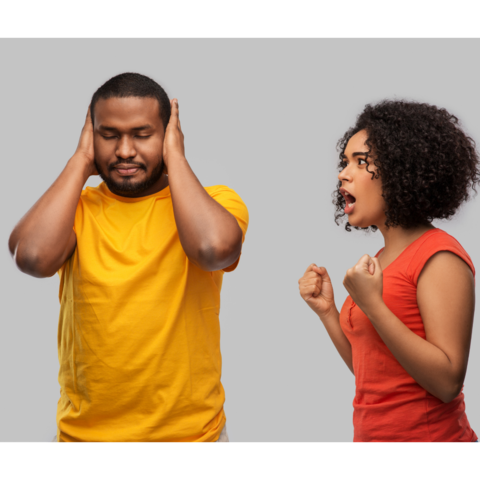Coronavirus Disease 2019
The Vaxxed and Unvaxxed Have More in Common Than They Think
It helps to know that there is common ground.
Posted December 7, 2021 Reviewed by Ekua Hagan
Key points
- Many are tempted to adopt an "us vs. them" attitude regarding vaccination when really it's "us vs. the pandemic."
- Regardless of whether one is vaccinated against COVID or not, a major factor contributing to wariness on both sides is uncertainty.
- Everyone makes decisions based on the information they have access to and by weighing their own risk tolerance.

Nearly two years later, it’s safe to say that most of us never could have imagined we would still be battling COVID-19. In 2020, the only defenses we were told we had were masks and social distancing, and people were divided about whether lockdown measures were the right thing to do. We now have broad access to various COVID-19 vaccines, but this has added yet another layer of drama to an already complicated situation: vaccinated people vs. unvaccinated people.
Vaccine mandates in many cities in the U.S. mean that some people are enjoying freedom and mobility that we haven’t experienced since early 2020, while others are having to determine if they can frequent venues they used to, or if they need to leave their jobs altogether. Some unvaccinated people say the mandates affect their ability to earn a living and move freely, and they feel constricted and left out. They also may be apprehensive about sharing their status because of the potential fallout and stigma attached to being unvaccinated, especially from family and friends.
Fear, frustration, and fatigue
With the holidays approaching, some folks are making the tough decision to change up their traditions and not visit with some family members, or host vaccinated-only gatherings. These decisions are deeply personal, and this charged environment is causing division and stress. But what vaxxed and unvaxxed have in common is fear, frustration, and fatigue, and that could be a starting point for finding common ground and creating more peace for everyone involved.
A major factor contributing to wariness on both sides is uncertainty. We don’t know how long COVID-19 is going to be around or how much longer our daily lives will be affected. We don’t know if new variants will crop up, and because some folks can be asymptomatic, we may not even know if we or others have the virus.
Another factor affecting us all is grief. With nearly 770,000 killed in the US alone, the swiftness with which the disease has cleaved through our ranks has put us in a continued state of mourning since 2020. These profound losses can lead to sadness, hopelessness, and depression if not for maintaining connections, rituals, and practices that keep us grounded and lift our spirits.
And we are all coping with change in navigating this new COVID-era landscape.
The uncertainty, grief, and change all contribute to ongoing stress and trauma that we have experienced, and it often shows up as stress, fear, anxiety, and anger.
The temptation to choose sides
Compounding those emotions is some people’s need to choose a side as if it's “us against them” rather than all of us against the pandemic.
There’s nothing wrong with standing by how you feel. We’re all making decisions based on the information we have access to, and by weighing our own tolerance for risk.
But arguing about who’s right won’t solve anything and may endanger already frayed relationships. At this point, it’s probably unlikely that you will convince anyone to agree with you, especially if you’re being dogmatic and judgmental. What we can do to lower the tension in that communication is to set and honor our own boundaries.
If you’re unvaccinated and still have questions, then stand by that as you adhere to distancing and masking to protect your health and that of others and continue to seek answers from trustworthy sources based on science. Remember that it’s not OK to force others to abide by your health choices.
If you’re vaccinated and don’t feel comfortable around people who aren’t vaccinated, then stand by that as well. Keep your distance and mask up, and show patience and extend grace to your fellow human beings. Know that many people who aren’t vaccinated feel under attack for their personal decisions.
We’re all experiencing fear, fatigue, and apprehension in these battle-scarred days of COVID-19; and imposing our views on one another is not a sustainable path forward. We will come out of this much stronger if we agree to disagree—and each of us does what we need to do to stay safe.


